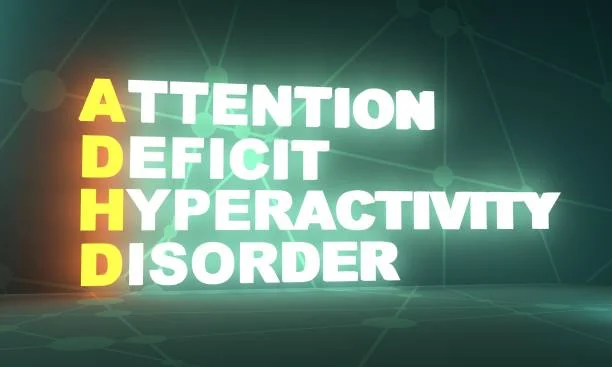Childhood behavioral problems can be hard to figure out. Two conditions that get confused are disruptive mood dysregulation disorder and oppositional defiant disorder. Parents see kids acting out and wonder what’s happening.
Understanding disruptive mood dysregulation disorder vs oppositional defiant disorder helps sort out these different problems.
Still curious? Here’s another read we think you’ll love.
DMDD: Extreme Emotional Outbursts
Disruptive mood dysregulation disorder involves severe temper tantrums that happen way too often. Kids with this condition can’t control their emotions most days. Their mood stays cranky or angry almost constantly.
These aren’t normal kid meltdowns. The outbursts are extreme and occur at least three times weekly. They can last for hours. Between episodes, the child remains irritable and difficult.
DMDD typically appears before age 10, though diagnosis requires symptoms lasting at least a year across multiple settings – home, school, and social situations. This isn’t about occasional bad days or developmental phases.
The condition severely impacts daily functioning. Children struggle academically, have trouble keeping friends, and create ongoing family stress. Households often revolve around managing the child’s unpredictable emotional episodes.
Most children don’t outgrow DMDD without intervention. Emotional dysregulation tends to persist into adolescence and adulthood without proper treatment.
Core DMDD Features
The main characteristic is persistent irritability lasting most days. This represents constant emotional chaos affecting everything the child does, not occasional grumpiness.
Temper outbursts are disproportionate to triggers. Minor frustrations like cleaning requests might cause hour-long meltdowns involving screaming, throwing objects, or physical aggression. The response doesn’t match the situation.
Between outbursts, children remain consistently cranky. They frustrate easily, anger quickly, and seem impossible to please. Any experienced psychiatrist NYC practitioners work with will confirm that this chronic irritability makes interactions challenging for everyone.
ODD: Defying Authority
Oppositional defiant disorder involves persistent patterns of angry, defiant behavior toward authority figures. Children deliberately disobey rules, argue with adults, and refuse cooperation. This exceeds normal childhood defiance.
The behavior occurs more frequently than in same-age peers. It’s not occasional rebellion but consistent patterns interfering with relationships and daily functioning. Defiance usually targets parents, teachers, and authority figures.
ODD becomes noticeable during preschool years but can develop later. Behaviors must persist for at least six months across multiple settings to distinguish from normal developmental phases.
Children with ODD often maintain good peer relationships while struggling with adults. They cooperate with friends but oppose parents and teachers. This behavioral selectivity characterizes the condition.
Outcomes vary considerably. Some children improve with treatment and develop better coping skills. Others may progress to serious conduct problems without proper intervention.
Key ODD Behaviors
Children show specific behavioral patterns distinguishing ODD from normal defiance. These behaviors occur more frequently and intensely than developmentally expected.
Constant arguing with adults becomes routine. Kids question every request, challenge rules, and engage in power struggles over minor issues. They seem unable to accept adult authority peacefully.
Common warning signs include:
- Deliberately annoying others and enjoying negative reactions created
- Refusing compliance with simple requests, turning routine tasks into battles
- Blaming others for mistakes and misbehavior consistently
- Being touchy, easily annoyed, and resentful toward authority figures
- Showing vindictive behavior and seeking revenge for perceived slights
Comparing These Conditions
When examining oppositional defiant disorder vs disruptive mood dysregulation disorder, key differences emerge. Both involve challenging behaviors, but underlying causes and primary symptoms differ significantly.
The most obvious difference involves emotional regulation. DMDD centers on severe mood problems and extreme temper outbursts. ODD focuses on defiant behavior and authority opposition without necessarily involving severe emotional dysregulation.
Outburst frequency varies between conditions. DMDD children have severe tantrums multiple times weekly lasting hours. ODD kids might have arguments and defiant episodes without the same emotional intensity or duration.
Mood Patterns
Baseline mood differs significantly. DMDD children remain irritable and angry constantly, even during calm periods. Their mood stays consistently negative and difficult.
ODD kids might have normal moods when not interacting with authority figures. Their oppositional behavior is more situational and targeted rather than representing chronic mood states.
Emotional intensity also varies. DMDD involves extreme reactions disproportionate to triggers. ODD involves defiance without the same emotional chaos level.
Behavioral Focus
Problem behavior focus differs between conditions. DMDD behaviors center on emotional outbursts and mood regulation difficulties. Children struggle controlling emotional reactions to everyday situations.
ODD behaviors focus on authority opposition and defiance. Children deliberately resist adult direction and challenge rules. The behavior appears more calculated and intentional.
Can Both Conditions Coexist?
Whether oppositional defiant disorder vs disruptive mood dysregulation can occur simultaneously is complex. Current diagnostic guidelines generally don’t allow both diagnoses for the same child.
This restriction involves symptom overlap. Many DMDD behaviors could meet ODD criteria, making primary condition determination difficult. Diagnostic clarity ensures appropriate treatment planning.
However, children might show features of both conditions at different times or settings. Someone might have DMDD as primary diagnosis while displaying oppositional behaviors not meeting full ODD criteria.
Symptom Overlap
Both conditions can involve defiant behavior for different reasons. DMDD children might refuse rule-following during emotional outbursts. ODD children refuse due to oppositional nature.
Aggression appears in both but stems from different sources. DMDD-related aggression occurs during severe emotional dysregulation episodes. ODD-related aggression might be more calculated and targeted.
Family conflict happens with both conditions but for different reasons. DMDD creates conflict through unpredictable mood swings. ODD creates conflict through deliberate defiance and rule opposition.
Treatment Approaches
Treatment differs based on primary symptoms and underlying causes. Understanding correct diagnosis ensures children receive appropriate interventions for their specific needs.
DMDD treatment focuses on emotional regulation skills and mood management. Therapy approaches teach emotion identification, coping strategies, and managing intense feelings before escalation.
ODD treatment emphasizes behavior modification and family therapy. Focus involves changing oppositional patterns, improving parent-child relationships, and establishing clear expectations with consequences.
Intervention Methods
Cognitive behavioral therapy helps both conditions but targets different skills. DMDD CBT focuses on emotional regulation and distress tolerance. ODD CBT addresses problem-solving and perspective-taking abilities.
Family therapy plays different roles. DMDD family work focuses on crisis management and supportive environments. ODD family therapy addresses communication patterns and behavior management strategies.
Social skills training benefits both conditions differently. DMDD children learn emotion management in social situations. ODD children work on cooperative behaviors and accepting feedback.
Management Strategies
Daily management differs based on primary condition. DMDD management prevents emotional escalation through calm, predictable environments and early warning sign recognition.
ODD management emphasizes clear expectations, consistent consequences, and strategic battle selection. Parents learn avoiding power struggles while maintaining appropriate boundaries.
School support varies between conditions. DMDD children need emotional regulation supports and calm-down spaces. ODD children benefit from clear behavioral expectations and consistent consequence implementation.
Effective techniques include:
- Creating structured routines providing predictability and stress reduction
- Teaching age-appropriate problem-solving skills and emotional regulation techniques
- Implementing logical consequences related to specific behaviors consistently
- Providing positive reinforcement for appropriate behaviors and cooperation
- Building strong parent-child relationships through quality time and positive interactions
- Coordinating home-school approaches for consistency across environments
Long-term Outlook
Prognosis depends on symptom severity, family support, and treatment access. Early intervention significantly improves outcomes for both conditions.
DMDD children receiving proper treatment often develop better emotional regulation skills. However, mood regulation struggles may continue into adolescence and adulthood. Ongoing support helps develop coping strategies.
ODD outcomes vary considerably. Some develop better relationship skills and reduce oppositional behaviors with intervention. Others may progress to serious conduct problems without proper treatment and family support.
Family involvement significantly impacts outcomes. Parents learning effective management strategies and maintaining consistent approaches see better behavioral improvement over time.
Moving Forward
Understanding differences between disruptive mood dysregulation disorder vs oppositional defiant disorder helps families and professionals make informed treatment decisions. While conditions share features, they require different approaches for optimal outcomes.
Accurate diagnosis guides treatment planning and realistic expectation setting. Children benefit when interventions target specific symptoms and underlying difficulties rather than generic approaches.
Both conditions respond to appropriate interventions and family support. While challenging behaviors overwhelm families, help is available and improvement possible with consistent effort and professional guidance.
Catch up on the latest updates anytime from 2A Magazine.







